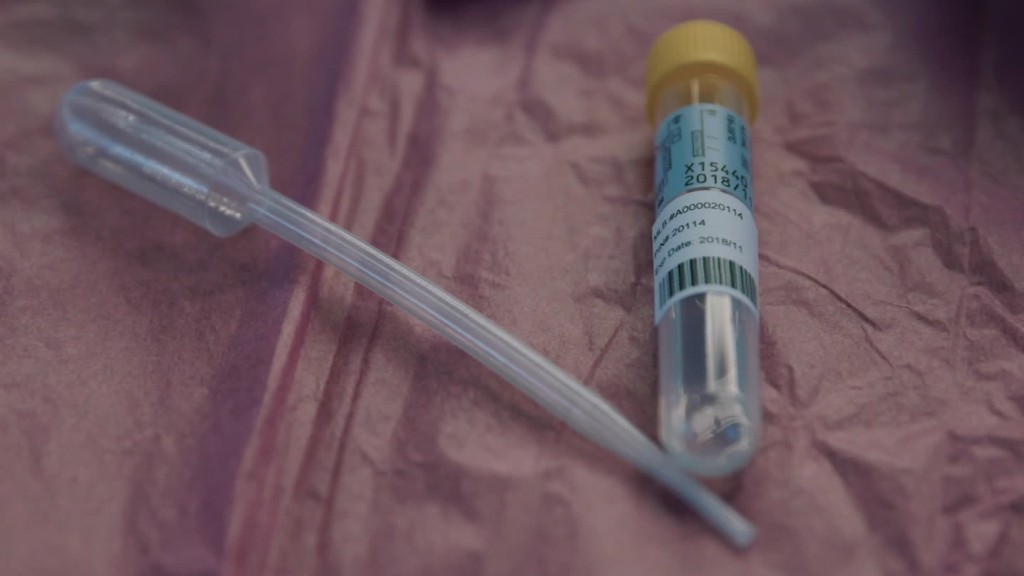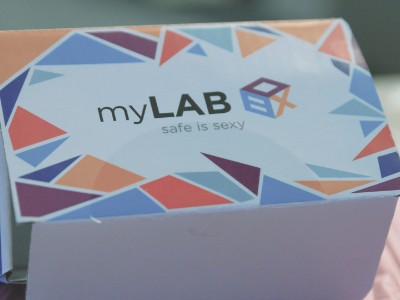
"So, which one of you is the slut?"
That's a question that one potential investor asked Lora Ivanova and Ursula Hessenflow while pitching their STD testing startup myLABBox. On top of being wildly inappropriate, the sentiment reveals the stigma associated with sexually transmitted diseases.
"There are some misconceptions that [STDs are] a young person's problem or a gay man's problem," Ivanova told CNNTech.
The reality is that sexually transmitted infections are pervasive and on the rise. There are nearly 20 million new sexually transmitted infections every year, according to the Centers for Disease Control and Prevention. Rates of contracting STDs are at an all-time high in the U.S.
"We always think it's somebody else's problem," added Ivanova, who said their customers range from millennials to senior citizens. myLABBox aims to normalize testing. Its online kits cost between $79 and $399 and test for everything from chlamydia, gonorrhea and syphilis to hepatitis C, HIV and HPV.
Boxes include all the materials for testing, like swabs, a container for urine and a package for collecting dry blood. Samples are sent in a prepaid envelope to certified labs for testing.

Because the startup is merely collecting samples, not testing those samples in people's home, it isn't regulated by the FDA. Instead, the tests are governed by Clinical Laboratory Improvement Amendments and laboratory standards. Each state has reporting guidelines for communicating STD test results that companies like myLABBox have to follow.
myLABBox results are posted online within three to 11 days; it provides a free virtual counseling session to those diagnosed with an STD and refers customers to telehealth doctors who can prescribe treatment.
Related: Tech versus Taboos: Can algorithm help kick addiction?
For years, advocacy efforts have been focused on getting people into clinics to get tested, but the fact that infection rates are going up would seem to indicate that this isn't working.
"We realized this really was a delivery issue. So instead of trying to deliver the user to the testing, we decided [to] switch it around," Ivanova said, adding that the kits aren't intended to replace visits to doctors but rather augment them. "Testing should be just as easy and intuitive as every other aspect of our life."
myLABBox, which has partnered with Target, Walmart and Amazon to sell its kits online, isn't the only startup that thinks STD testing is in need of innovation. Others like Mately and GetTested also test for STDs. Austin-based EverlyWell sells at-home tests for STDS as well as things like food allergies and fertility. Cofounder Julia Cheek said the impetus for starting EverlyWell was also to remove the friction around testing.
"We talked to a lot of consumers who viewed lab testing as a really inconvenient, extensive process. It was also associated with a lack of transparency in terms of cost," said Cheek.
Related: Tech versus Taboos: She thinks sex tech is necessary in the age of Trump
Planned Parenthood is also getting into this space. According to Planned Parenthood chief medical officer Dr. Raegan McDonald-Mosley, there's more of a need than ever to expand options for care. Some states have already started limiting options for women's reproductive health services. The House's health care bill would block Medicaid-covered patients from seeking care at Planned Parenthood.
Planned Parenthood is piloting two apps that deliver STD kits to people in certain states. That's in addition to its traditional brick and mortar spaces, which are especially important in communities where Planned Parenthood is the only provider for low income women.
"We need to be doing both at the same time. Sexually transmitted infections are still a big public health problem in part because of stigma," said McDonald-Mosley.

Ivanova says she is continually stressing to investors that her product isn't about sex -- it's about health.
"[Sexual health] is part of overall health," said Ivanova. "In order for you to be healthy, all of you needs to be healthy."

